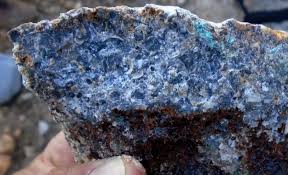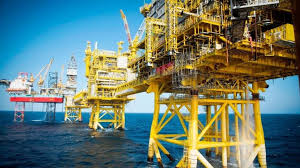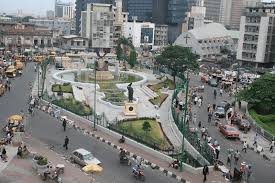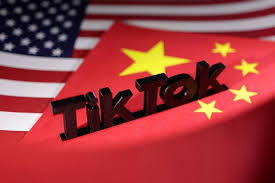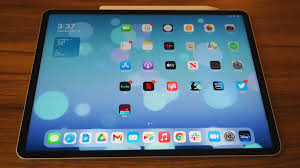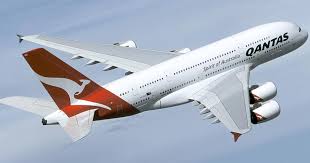The head of the African Development Bank is demanding an end to loans made in exchange for the abundant oil and vital minerals found on the continent, which are used in the batteries of electric cars and smartphones.
These agreements have allowed China to gain control over the mining of minerals in regions like the Congo and have put some African nations in financial crisis.
Laptops 1000In an interview this week in Lagos, Nigeria, Akinwumi Adesina stated, “They are just bad, first and foremost, because you can’t price the assets properly. “How do you determine pricing for a long-term contract if you have oil or minerals under the earth? It presents a challenge.
It’s common to hear that beneficiaries can obtain funding for infrastructure projects and lenders can lower the risk of default by tying future revenue from natural resource exports to loan pay downs.
These loans are being driven by the surge in demand for essential minerals brought on by the transition to renewable energy and electric vehicles.
This includes an agreement between China and the poor central African nation of Congo, which enhances Beijing’s standing in the global supply chain for electric vehicles and other goods by allowing it to access the world’s largest stocks of cobalt, a mineral needed to produce lithium-ion batteries.
These arrangements come with a laundry list of issues, according to Adesina, whose organization, based in Abidjan, Ivory Coast, helps finance development in African countries.
He emphasized how the talks were inequitable, with lenders usually having the upper hand and imposing conditions on financially struggling African countries. According to Adesina, this power disparity, together with a lack of openness and the possibility of corruption, fosters an environment that is conducive to exploitation.
Adesina stated, “For these reasons, I believe that loans backed by natural resources should end in Africa.” He mentioned a bank program that assists “nations in renegotiating loans that are imbalanced, opaque, and overpriced.”
Laptops 1000Natural resource-backed loans, according to Adesina, present a problem for development banks like his own and the International Monetary Fund, which support sustainable debt management.
According to him, countries that rely on the revenue generated by their natural resources, which are often vital to their economy, to settle debts related to those resources may find it difficult to obtain or return these loans.
Adesina brought up the dire financial situation that Chad was in after commodity trader Glencore’s oil-backed loan forced the central African country to use the majority of its oil earnings to pay off its debt.
An inquiry for comment was not immediately answered by a Glencore representative.
The IMF insisted on the renegotiation of loans backed by natural resources after Chad, Angola, and the Republic of Congo sought it for assistance.
Since the 2000s, at least 11 African nations have taken out dozens of loans totaling billions of dollars, all backed by their natural resources. China is the main source of funding for these loans through policy banks and state-affiliated businesses.
Oil-for-cash agreements have also been financed by Western banks and commodities traders like Glencore, Trafigura, and Standard Chartered; these agreements have been notable with the Republic of Congo, Chad, and Angola.
Trafigura cited its 2020 report “Prepayments Demystified,” which states that “trading firms are enabling production that would otherwise not be possible — thus underpinning economic growth, job creation, and the generation of fiscal revenues in the countries concerned.”
Standard Chartered did not immediately respond to an email requesting comment.
When asked about criticisms of China’s lending backed by oil; essential minerals like cobalt and copper used in electric vehicles and other products; and bauxite, the main mineral in aluminum manufacturing, which has been used in China’s recent resource-backed loan contracts with Guinea and Ghana, Adesina said there was no “fixation” on one country as being behind these types of loans.
He stated, “It is not about one country over another; any country can exploit when you don’t know what you are doing.” He also mentioned how crucial it is to have the ability to plan, negotiate at the national level, and manage debt.
Speaking to reporters last year, Mao Ning, a China’s Ministry of Foreign Affairs spokesman, stated that Beijing approaches its relations with Africa according to the “principle of transparency and openness.”
Congo is worried that it will receive insufficient benefits from the 2008 infrastructure-for-minerals agreement it struck with China, therefore it has been attempting to revise it. This gives the Chinese companies Sinohydro and China Railway Group a 68% share in a joint venture with Gecamines, the state mining corporation of Congo, for copper and cobalt.
The state auditor for Congo demanded last year that China boost its infrastructure investment pledge from $3 billion to $20 billion to match the value of the resources the state sold as part of the agreement. China disapproved of the auditor’s findings.
Laptops 1000The African Development Bank’s new Alliance for Green Infrastructure in Africa, according to Adesina, a former minister of agriculture for Nigeria, aims to raise $10 billion to assist nations in financing “bankable” sustainable infrastructure, including the energy and transportation sectors, which may lessen the appeal of problematic financing.


